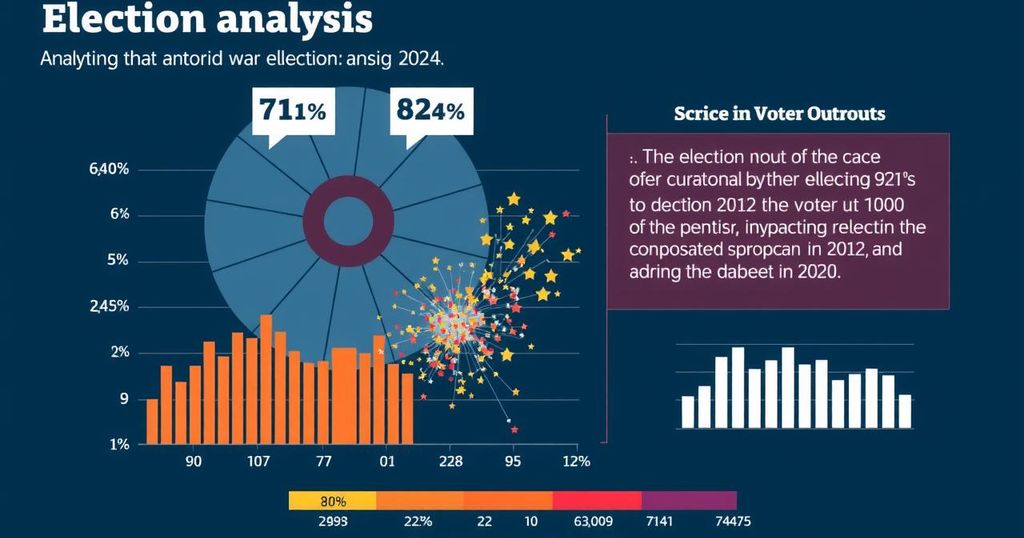Analyzing Kamala Harris’s 2024 Electoral Defeat and Voter Boycott Dynamics

Kamala Harris’s loss in the 2024 elections resulted from decreased voter turnout and a significant boycott by key demographics, particularly Arab and Muslim Americans. Trump, despite his previous unpopularity, gained some ground in swing states as Harris’s support eroded, reflecting a backlash against the Democratic stance on the Israel-Palestine situation. The overall turnout decreased compared to 2020, indicating a critical shift in the electorate’s response to prevailing policies and sentiments.
The 2024 electoral defeat of Kamala Harris can be attributed to significant voter discontent and a deliberate boycott by key demographics, particularly Arab and Muslim Americans. Despite Trump’s previous unpopularity, he slightly increased his vote tally in crucial swing states, while Harris experienced a severe decline in voter support. This election showcased a noticeable drop in turnout compared to 2020, as many voters expressed their opposition to Harris and the Democratic administration’s stance on the Israel-Palestine conflict, leading to an electoral shift that favored Trump in these pivotal regions.
The 2024 elections were marked by contrasting voter behaviors following the turbulent 2020 election cycle. Harris faced challenges stemming not just from Trump’s persistent support base but also from declining voter engagement, particularly among those who had previously supported Biden. The political backdrop involved intense scrutiny of U.S. foreign policy, particularly its unwavering support for Israel amid the conflict in Gaza, which motivated a significant segment of the electorate to abstain from voting or seek alternative candidates. Understanding these dynamics is essential for grasping the overall political climate leading to the 2024 elections.
In conclusion, Kamala Harris’s electoral defeat in 2024 can largely be attributed to a significant boycott from Democratic voters, particularly within Arab and Muslim communities. This decision stemmed from frustration with the Democratic Party’s foreign policy and a growing consensus against unconditional support for Israel during the ongoing violence in Gaza. The election results underscore the critical need for political leaders to recognize and address the concerns of these vital voter blocs to ensure better engagement in future elections.
Original Source: www.middleeasteye.net






